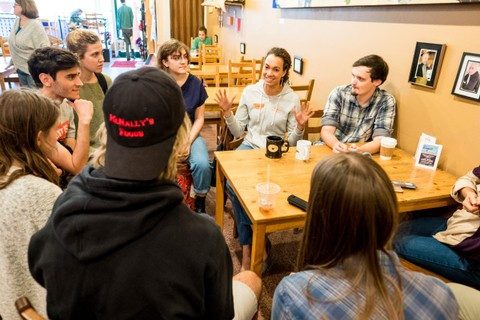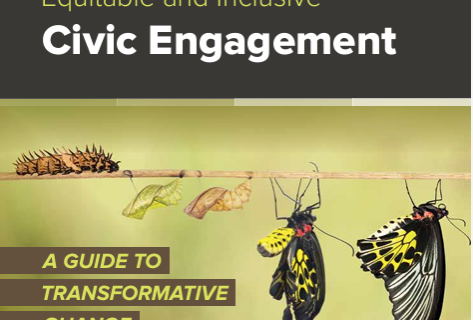In the CLS we believe that civic responsibility starts at home in the way we live and work together in our residential halls, on our campus, in our local communities, regions, nations, and world. In collaboration with our partners across the College, we offer an array of opportunities to build the mindsets, knowledge, and skills necessary to become equity-minded civic agents in just about any community we might find ourselves inhabiting.
Opportunities for Civic Learning abound at Grinnell! Do you want to:
- Join us on a local “Social Justice Tour” to learn more about our local community’s needs and innovative change-making?
- Volunteer with a local organization?
- Take a community engaged class?
- Collaborate with a community partner on an on-going service project?
- Participate in or lead a community dialogue?
- Take part in a workshop with our Social Innovator in Residence?
- Apply for a Service Leadership Work-Study position?
- Learn to diagram the systemic underpinnings of an entrenched social or environmental issue?
- Help your peers register to vote?
- Collaborate with local activists? or
- Lead or explore your own distinctive initiative?
You don’t have to do it all, you only need to do what is right for you, right now.
Click on a button above or meet with one of our staff members to learn more about who we are and how we can help you hone your civic aspirations.



